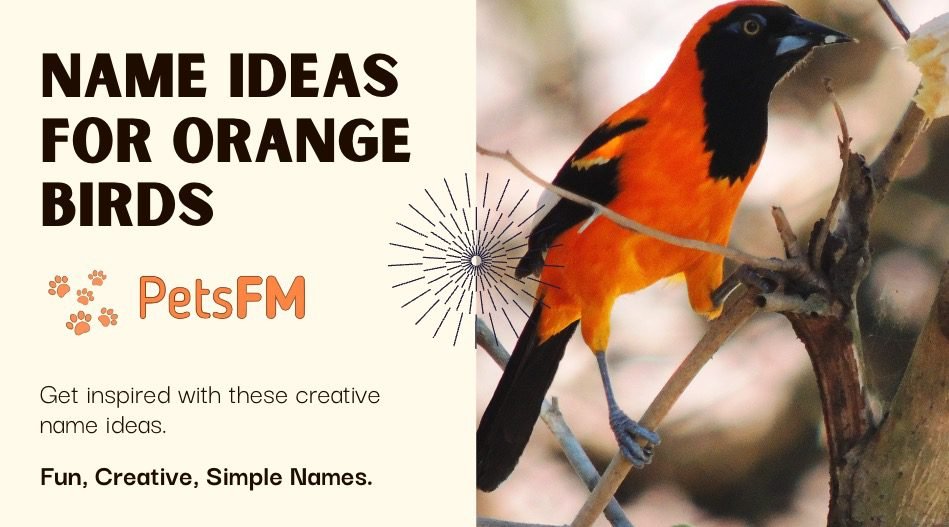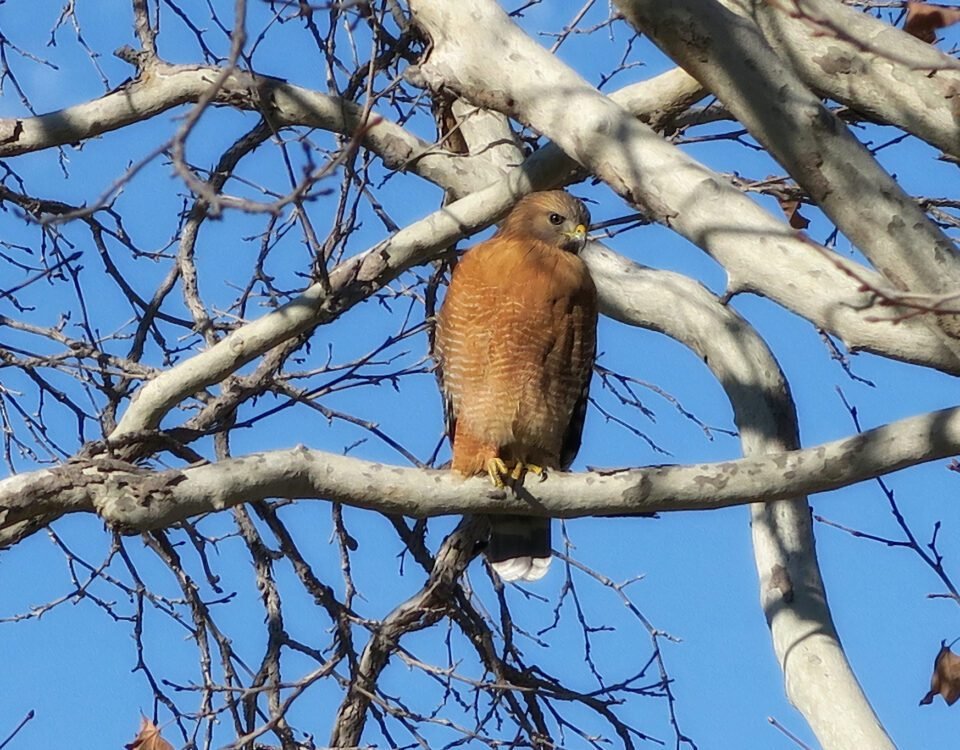


Why Do Birds Hit Windows? Is It Considered Spiritual?
October 9, 2023


Do Birds Like Music? Different Bird Species Analyzed
October 9, 2023As the summer sun warms our days, a refreshing slice of watermelon becomes the go-to treat for many. But can this juicy, red delight be shared with the birds? Can Birds Eat Watermelons?
Yes, birds can undoubtedly eat watermelons. This tasty fruit is a treat that many bird species enjoy discovering in gardens, but it’s also packed with essential nutrients and safe to consume. Its abundance of Vitamins A, B, B6, and C offers nutritional value and hydration. Additionally, it provides a burst of energy for birds.
Also Read: Can Birds Eat Walnuts? – Dietary Guidelines and Tips
Can Birds Eat Watermelons? Is It Safe?
Watermelon is a wholesome treat for humans and birds compared to other sugary delights. Even though it’s rich in sugars, the natural varieties present in fruits are deemed acceptable within a well-rounded bird diet.


Can Birds Eat Watermelon?
Every part of the watermelon can be consumed, from its juicy flesh to its seeds and even the rind.
Approximately 92% of watermelon’s composition is water. The residual content is predominantly carbohydrates and sugars, complemented by a modest amount of fiber and protein. The fruit is also a good source of essential nutrients and antioxidants, boasting vitamins A, B6, and C.
Interestingly, while the main flesh of the watermelon is primarily hydrating water, its seeds are nutrient powerhouses. A cup of these seeds provides a substantial 31 g of protein and decent amounts of vital minerals such as calcium, iron, and potassium.
However, it’s worth noting that while watermelon is a treat, it’s not a complete dietary solution for birds. It’s relatively low in proteins and fats, essential to a bird’s diet. Hence, while watermelon might not serve as a primary food source, it undoubtedly makes for a nutritious and appealing occasional treat that birds greatly enjoy.
Editor’s Pick: Are Birds Herbivores? A Look at Different Bird Species
What Birds Eat Watermelons?


Various bird species have a proneness for fruits; for instance, bluebirds savor berries and nuts. The fruit choices of birds often vary with the seasons, going with what’s accessible.
Each fruit offers unique benefits, but watermelon stands out for its rich vitamins, minerals, sugar, and hydration content. Birds are generally not too fussy about their fruit choices, but during the scorching summer months, they tend to gravitate towards juicier options like watermelon to keep themselves hydrated.
Many birds enjoy fruits and snacks, including watermelon, pumpkins, pears, strawberries, and popcorn. Notable among these are orioles, waxwings, robins, Western Tanagers, Golden-crowned Sparrows, and Spotted Towhees.
Can Birds Eat Watermelon Rind?
While watermelon rinds are naturally safe, they can offer multiple health advantages for birds, including being a valuable source of fiber for birds.


Watermelon Rind
However, a cautionary note is essential. Commercially grown watermelons often come with a layer of pesticides and fungicides used during cultivation. Although many fruits get a thorough wash before consumption, some might overlook watermelons. Hence, it’s essential to wash them to prevent potential contamination.
For the safety of the backyard birds you’re feeding, it’s advisable to remove the outermost layer of the rind, ensuring they’re not exposed to any harmful residues.
Recommended Read: Learn If Your Birds Can Eat Lettuce: Latest Guide
Are Watermelon Seeds Safe For Birds To Consume?
Watermelons are available in both seeded and seedless varieties, and both are suitable and safe for backyard birds.
Instead of discarding the leftovers of a watermelon you’ve enjoyed, consider offering them to the birds in your yard. Remember to remove the outer rind first for safety reasons.
In fact, you should repurpose the seeds and juice left from carving a watermelon, setting them out for the birds rather than disposing of them.
Birds are perfectly fine consuming black, white, or other watermelon seeds.
Moreover, watermelon seeds are a nutritional treasure trove, packed with beneficial minerals and nutrients such as copper, potassium, magnesium, zinc, and folate. These essential components contribute positively to a bird’s feather health, bone strength, heart function, and overall metabolism.
However, if you’re offering seedless watermelon to your birds, that’s also perfectly fine. While it may lack the additional nutritional boost from the seeds, the flesh still benefits our feathered friends.
Must Read: Can Birds Have Milk? Different Types of Milk Analyzed!
How To Serve Watermelons To Your Bird?
Watermelon seeds are a hit among birds.
- To make it easier for them to enjoy these seeds, it’s advisable to soak them overnight, facilitating easier pecking.
- When serving watermelon, striping away the rind is crucial to minimize the risk of exposing the birds to pesticides.
- For tidier feeding, consider dicing the watermelon into small chunks. This limits the potential mess and reduces the surface area, making it more manageable for the birds.
- Nevertheless, be ready for some clean-up post-feeding. If the birds haven’t consumed the offered watermelon within a couple of hours, it’s wise to discard it to prevent any bacterial growth that could be harmful to them.
Can Birds Have Watermelon Juice?


Watermelon Juice
Absolutely! Watermelon juice is not only safe for birds but also easy to prepare. Start by peeling off the watermelon rind, then blend the fruit until smooth. After mixing, it’s a good idea to strain the juice to eliminate residual seeds, ensuring your parrot can enjoy it without choking hazards.
Can Baby Birds Have Watermelons?
Indeed, watermelons are a good choice for baby birds. The inner flesh of the watermelon is soft and easily digestible, unlike some other fruits, making it effortless for them to nibble on.
The significant water content of watermelon also serves as a hydration boost for these young birds. Watermelons can offer beneficial nutrients for your fledglings as long as it’s given in moderation.
Can Birds Eat Watermelons Everyday?
Different bird species have varied dietary needs. While seeds form a staple in many birds’ diets, fruits and vegetables can also be included daily, albeit in limited quantities.
A balanced diet, crucial for any bird’s health, often includes a variety of foods, including fruits like watermelon. Birds primarily consume energy food, which largely comes from carbohydrates.


Can Birds Eat Watermelons Everyday?
Carbohydrates are abundant in fruits and other sugary foods, serving as essential energy sources. However, excess carbs can lead to fat accumulation, underscoring the importance of moderation.
It’s essential to ensure that watermelons aren’t the primary components of their diet. Moreover, the chemicals used in conventional agriculture can alter the nutritional content of these foods, sometimes increasing their sugar content, which in excess can lead to issues such as diarrhea in birds.
What Other Fruits Do Birds Enjoy?
Watermelon is among the various fruits serving delightful treats for pets and wild birds. Here are some other fruits that birds thoroughly enjoy:
- Blueberries: Blueberries are rich in vitamin C, vitamin K, and dietary fiber. They are also packed with antioxidants, particularly anthocyanins, which give them their deep blue color and support overall health.
- Raspberries: Raspberries are high in dietary fiber, vitamins C and K, and manganese. They also contain strong antioxidants like quercetin and ellagic acid.
- Grapes and Raisins: Grapes are a good source of vitamins C and K, as well as various antioxidants and polyphenols. Being dried grapes, raisins have concentrated amounts of sugar and calories but retain some of the vitamins and minerals in grapes.
- Sliced Apples: Apples are a good source of dietary fiber and vitamin C. They also contain various phytonutrients, including quercetin, which has anti-inflammatory and antioxidant properties. Remember to remove the seeds when offering apples to birds, as they contain a compound that can be harmful in large amounts.
- Sliced Oranges: Oranges are famously rich in vitamin C. They also provide potassium, fiber, and various antioxidants. Additionally, the flavonoids in oranges have been linked to improved heart health.
The Bottom Line
Turns out, watermelon is an almost ideal treat loaded with benefits for birds. However, it’s vital to ensure its safety by either stripping off the rind or thoroughly washing it before serving.
Once you’ve offered watermelon to your avian friends, please take a moment to relish the sight of them indulging!
Providing wholesome snacks like watermelon and other fruits might attract a diverse range of bird species that don’t typically frequent your feeders.
As your yard gains a reputation for offering nutritious delicacies, expect an increasing number of species to drop by!



